Many of the early Methodist preachers, both itinerant and local, were also gifted evangelists, philanthropists, educators and organisers. Methodism in essence is the company of believers who were and are being added to Jesus’ disciple-band, through the original labours of two brothers, and the help of many others, both in their own and succeeding generations. In subsequent Nigerian Methodist history as the first international denomination in Nigeria, that tradition is continued through personality like my father and evangelical leader, Sir Remi Omotoso, a fearful saint and a General of the Lord’s army. The emergence of Methodism as a missionary movement under the co-leadership of John Wesley, ‘in addition to his many other gifts as theologian, writer, educator, philanthropist, organiser and leader, was arguably one of the greatest evangelists the Church has known.’ Our calling as Methodists describes evangelism as ‘making more followers of Jesus Christ.’ Sir Remi Omotoso as a Methodist Evangelist and Knight in a variety of pioneering and innovative ways and gifts by his conversion to Jesus Christ, his Christian lifestyle, his everyday personal and corporate witnesses articulated God’s good news in Jesus Christ with effective conviction, passion, humour, and commitment that many others were brought to the Christian faith.
Sir Remi, described by his home Governor, Ekiti Sate, Dr Kayode Fayemi ‘as a frontline investor, thoroughbred professional, seasoned administrator and impactful community leader who lived a life of service to God and humanity,’ was born on Saturday 28th August, 1945 in Odo Ayedun-Ekiti. According to Dr Fayemi, “For us in Ekiti, this is a huge loss. Sir Remi Omotoso was an exemplar. He represented our very best in Ekiti and made great impact in almost every aspect of life. He remained a source of pride and inspiration to generations after him.’ Sir Remi was not only impactful and an exemplar at the national and State levels, he was a grassroots leader and mobiliser at Odo Ayedun Ekiti. Sir Remi was many years chairman, Ekitiparapo Society of Lagos. Sir Remi with other compatriots established Igbimo Ure Ekiti and he ‘remained supportive of all Government Administrations before and since the creation of Ekiti State.’
During Sir Remi’s installation at his home church as the ‘Baba Ijo,’ Methodist Church, Odo-Ayedun, he used the occasion to launch a financial cooperative network for the church members and the community at large. His installation as the Baba Ijo was the remarkable point in the construction of the new church building. He made it a rule he obeyed not to build any personal house in Aiyedun until the church building is completed. Sir Remi Omotoso, a Methodist Evangelist was equipped and empowered by the Holy Spirit for the church’s mission and ministry, and his gifts were used both inside and outside the church.
Outside the church and beyond the particular form of corporate democracy called ‘shareholder activism, Sir Remi Omotoso exemplified Methodism’s own social holiness, ethics, and revivalist tradition to overcome capitalism’s ‘running tensions—the conflicts of interest among public company directors, managers, and shareholders.’ Sir Remi an exemplary board leader and a humorist brought a refreshing approach to the ‘generations-long conflict between entrenched corporate management and shareholder activists.’ Sir Remi’s God’s gift opened many doors of ministry and services in the church and Nigeria’s corporate boardroom for him. It is on record that ‘when Chief Joseph Sanusi, erstwhile Central Bank of Nigeria governor was looking for someone to occupy a vacant seat on the board of Standard Chartered Bank where he was then chairman, his mind went straight to Sir Remi Omotoso,’ a Methodist evangelist and knight. The testimony is that Sir Remi eventually succeeded Chief Sanusi as the chairman of the bank and Sir Remi left an aggressive growing legacies in the bank.
Sir Remi had his elementary education at Odo Aiyedun Ekiti. He attended Methodist Teacher Training College, Grade Three, Ifaki Ekiti. He studies Geography at the University of Ibadan. Sir Remi also holds degrees in Masters in Business Administration and in advance management from Unilever’s famous Four Acres Institute, UK, Fuqua School of Business, Duke University, Durham NC, USA and the University of Ibadan. On July 1st, 1971, Sir Remi was recruited as a commercial trainee into Lever Brothers Nigeria Ltd, a multinational giant manufacturer and marketer of detergents and soap where he ‘established himself as a worthy asset in the company … rose to the top of that line within 12 or 13 years. He thereafter joined the board as a Personnel Director after some training abroad.’ It was at Lever Brothers that later became Unilever Nigeria that Sir Remi became next in rank to the Chairman. Sir Remi worked very closely with a former chairman and chief executive of Unilever Nigeria Plc, President, Manufacturers Association of Nigeria (MAN), and one of Nigeria’s renowned industrialists, Chief Rufus Folorunso Giwa who died on 26th March, 2003 in an auto crash on the Lagos-Ibadan expressway.
The board politics at Unilever brought out the Methodist Christian spirituality in Sir Remi. As a Prayer Partner with Sir Remi, Wesley House Conference Room, Lagos was our Mountain and place of regular prayer meeting. Sir Remi believed in efficacy of prayer. Despite all the human humiliations and threats from different quarters, Sir Remi did not join any cult in order to seek for position. God who works and moves in a mysterious way did not allowed Sir Remi to see corruption and decay. God performed His wonder in Sir Remi’s life and leadership storms. God of never failing skill who plants His footsteps in the sea and deep unfathomable mines of Sir Remi ‘rides the storm’ with him. God ‘treasures up His bright designs and works His sov’reign will’ for Sir Remi, a fearful saint indeed. Sir Remi received fresh courage from God and the clouds of board politics and other so much dread rained blessings on Sir Remi’s head, family and church.
Sir Remi never judged the Lord by his human feeble sense rather he trusted God for His grace and indeed ‘behind a frowning providence’ at Unilever and other places, God put a smiling face upon Sir Remi at the Odu’a Investment Company as the Group Managing Director. God’s purposes really ‘ripen fast, unfolding every hour’ for Sir Remi. The bud that had a bitter taste at Unilever and other places for Sir Remi was followed by sweet taste at Odu’a Investment Company till the end of his corporate leadership and tenureship. Sir Remi got married to his amiable and loving wife, Lady (Pastor) Ebun Omotoso on Saturday 5th January, 1974 and the marriage is blessed with God fearing children and grandchildren.
At his Lagos official base, Sir Remi was a class leader and mentor to many people and groups in the church and in the community. The duos of Sir Remi and his senior brother, Mr Doye Akinyemi served God fervently in Wesley Church, Araromi, Lagos. Sir Remi was a Senior Local Church Steward, Wesley Church Araromi, Lagos Island for many years. Sir Remi noted for his free giving spirit lives on within the entire Araromi Community, Lagos Island, including the Muslims and unchurched people. Sir Remi served as Methodist Lay President of Lagos diocese and Conference Lay President. His Eminence Sunday Makinde, a Prelate emeritus, Methodist Church Nigeria described Sir Remi as a dear friend, steward, Lay President, and Methodist Board of Trustee member and as ‘a great all rounder performer.’ His Eminence Makinde said, “A great Elephant has left the forest. An Iroko tree has fallen in the forest of Methodist Church Nigeria. He has taken the crown of righteousness that is my joy.” Sir Remi was appointed as the head of a peace mission to Okun Diocese which included Sir Bolumole, Most Rev Charles Oderinde, Most Rev Akinloose Akindeko and Dame Adeleye. Most Rev Akindeko described Sir Remi as God’s blessing to mankind ‘a philanthropists, a grassroots mobiliser, an astute administrator, a father, a prayer warrior and above all, a Methodist to the marrow.’
Sir Remi was a missional pillar behind the formation, vision, and mission of the Methodist Evangelical Movement (MEM). He was the pioneer President of the Fellowship of Methodist Professionals with Engr Deji Aderibigbe as the Secretary and with some others members like late Dr Iseoluwa Aworinde, Deaconess Bella Ademola. Sir Remi was a facilitator of the Methodist Praying Partner. During the first and second national Methodist Evangelical Convention in 1993 and 1997 at Redemption Camp, Lagos/Ibadan Expressway, Sir Remi and his wife Lady Pastor Ebun surrendered their house at the Camp as the administrative base for the Convention. Sir Remi served as the Convention Camp Commandant. In 2000, when I served as the Chairman, Planning Committee for the Methodist Evangelical Convention, I was called to address the Methodist annual Conference in 2000 hosted by the Diocese of Enugu at Hotel Presidential Enugu, why the Evangelical Convention should not be postponed due to some logistic fears. After my address, Sir Remi stood passionately behind me and His Eminence Mbang lead the Conference to approved the Convention to hold in 2000 at Methodist village, Orimerunmu. Tayo Olufemi, the pioneer National President of Methodist Campus Fellowship (MCF), MCF Alumni, and currently the Chairman of MCF National Governing Council described Sir Remi as ‘a Lay President like no other. A father figure, a role model and a voice for the MCF and MCF Alumni, who supported and ran with MCF vision to his last days.’ Wesley’s University, Ondo, and Wesley Property and Investment Company established by Methodist Church Nigeria are also part of Sir Remi’s passion and commitment, and till his transition and change of address, he contributed immensely towards the development.
Sir Remi, a Methodist evangelist received the Methodist Church Nigeria highest award, Knight of John Wesley (KJW). In contrast to the physicality and secular understanding of knighthood, Sir Remi with some others recipients promoted a missional theology behind Methodist episcopacy and knighthood. The Methodist practice of knighthood is to be shaped by Wesleyan spirituality as a means of grace and not for self glory. Until he ascended on June 5, 2020, Sir Remi personified Methodist knighthood as a call to personal renewal for corporate renewal, and sacrifice towards God’s mission and evangelism.
Sir Remi, a Methodist evangelist and knight in Nigeria’s corporate boardroom served as Director/Chief Executive Officer of Lagos Chamber of Commerce and Industry (2005-2008). Among Sir Remi’s other notable appointments with different corporate organisations in Nigeria include: Board Chairman at Greenwich Trust Limited Group, Chairman, DN Meyer Paints, Juli, Plc, former Group MD at Odua Investment Company, former External Relations Director at Unilever, former Customer Service Director at Unilever, former Chairman, UI Ventures, former Human Resources Director (HR Director) at Unilever, former Logistics Controller at Unilever. Sir Remi was the ‘chairman, PPP Committee of Ekiti State during Governor Fayemi’s first term and served actively in the State Covid-19 Response Resource Mobilisation Committee, where he served as Chairman of the Funds Management and Evaluation Committee and the Federal Government Relations Committee.’According to Governor Fayemi, “Despite Sir Omotoso’s busy schedule, he invested, his time and resources and energy on many laudable initiatives that impacted positively on the lives of the people and was always ready to support successive administration in the state with his wealth of experience and extensive national and global contacts.” Sir Remi donated a 20 hospital beds to Oba Adejuyigbe Isolation Centre, ‘and huge fund to support the state’s efforts against coronavirus pandemic.’ Professor Idowu Olayinka, the 12th Vice-Chancellor, University of Ibadan described Sir Remi as a rare gem, ‘an epitome of the University of Ibadan Alumni unique traits of sound learning and character.’
Sir Remi featured in the book 50 NIGERIA’S BOARDROOM LEADERS—Lessons on Corporate Governance and Strategy. Mike Awoyinfa explained that Sir Remi’s ‘contribution is among the best.’ According to Awoyinfa, Sir Remi ‘defines boardroom leadership with verve and authority.’ Let us close this tribute on Sir Remi, a Methodist evangelist and Knight as we reflect on his seven points on ‘essence of boardroom leadership’from the book 50 Nigerian’s Boardroom Leaders which are also applicable to effective church leadership:
1. Boardrooms come in different shapes and sizes depending on the type of company. They have a common character however: a room containing members of diverse backgrounds, diverse experience, diverse knowledge, diverse character traits. In some instances, when you assess the aggregate experience sitting in that room, the combined time the directors had spent in management, the time spent in their professions, the varied experience they have had, you might be talking of close to a thousand years of experience put together which the company is tapping into. Some of the members are from financial background, some technical, some legal, some environmental, some marketing, all pooled at the board to produce good strategic plans.
2. The board’s centre of gravity is the chairman, a member who knows his onions in bringing people to reason together in a positive manner and in coagulating ideas of different people. He must be someone who can get the best out of everybody. He should be the one who can build synergy and cohesion. If there is somebody who is totally out of tune with others, the chairman has to identify such, counsel or find a way of easing the fellow out before he becomes a spoiler. A strong board is that where there is a spate of diverse opinions, but the chairman being able to reconcile and tuning them to the direction of achieving the goals and aspirations of the company. That is an effective board.
3. My years in the boardroom have taught me some lessons. The boardroom is another school, a school as strong as Harvard. In fact, there are certain things in the boardroom that are not taught in Harvard. In the boardroom, you learn prudence, humility, firmness, focus, results-orientation, management of diversity of people and a host of other qualifications that a good leader must have anywhere. You get strengthened if you are lucky to have gone through one or two boards.
4. A board chairman must not see himself as God. After all, he is first a director before he was elected chairman. What would they have seen in him to say he should be a better chairman than any of them? One, he must have a respectable level of experience. Two, he must be a fantastic listener. A great coordinator. A psychologist of a kind. A fair-minded fellow who is prepared to not to dominate the board but is prepared to get other people to contribute and is able to synthesize the contributions of those people to form a decision that others will key into and take ownership of. He must be firm, but not overbearing. He must have transparent integrity. Integrity of thought, words and action. He must be seen as a personification of the organisation itself. A man who earns and keep respect. Let it not be expected that the chairman would be master of all subjects. He cannot be. He cannot be an expert in finance, marketing, supply-chain management and even law. But he must be able to learn quickly and learn how to tap into the knowledge of others, so that the goals of the board can be achieved. He must not see himself as a taskmaster of the board. He must see himself as the leader of the board instead.
5. His role is basically that of coordination. In other words, effective leadership: managing meetings to be productive, managing time in meetings so that it doesn’t degenerate to a beer parlour kind of gathering, ensuring that members focus on the subject of discussion. It is part of his role to work with appointment and governance committee to ensure that the board is refreshed in line with the Article of Association. He is a bridge between the board and management through the CEO and the company secretary. Because the boardroom is his principal constituency, he must have demonstrable knack for managing meetings. I chair board meetings. Nobody notices that my phone has been set to show me the time. So, coming into the meeting, I have already set the number of hours, all other things being favourable, that we will spend in the meeting, so that the session will not be boring and tiring. I am mindful that we will get to stages in the meeting where discussions can spark argument. It is my role to pour oil on what looks like troubled water. If you are straight-faced, no-nonsense, straight-talking chairman, you are not going to succeed much. There must be a point in the meeting when you will bring in relevant jokes that will make people feel that they are just starting the meeting, and the fellow who feels a little heated up relaxes. You must have some sense of humour, but not to the extent of turning into a comedian.
6. “As chairman, I place a lot of emphasis on availability of board papers to members early enough as part of ensuring informed discussions and good decisions. I encourage periodic rotation of board committee membership to sharpen skills of board members and attempt to create breadth of knowledge. I pay attention to training of board members including myself for knowledge and skills upgrade. I ensure that remuneration of board members and management gets adequate attention.”
7. A chairman must have a tremendous knowledge of certain areas, but don’t turn yourself into a “professor” in the boardroom. Just bring out the salient points of that knowledge to guide the meeting forward. You don’t have to turn the boardroom into a classroom. The people sitting with you are no novice. Don’t make it a history class where you tell stories of what happened in 1843. There will be occasion when one or two such inferences can be made but not to the point of becoming the main feature of a board meeting.
A chairman does not dominate. You are like the conductor of an orchestra harmonizing and bringing the best in everyone. Don’t go through a board meeting without every member making one contribution or the other. You must persevere. Don’t be a chairman who goes in and out of the meeting, say 10 times. You must regulate your bladder. Go to toilet before you come to the meeting. It is not good for the chairman to be the one to say: “I want to quickly use the toilet.” The chairman is not the one that will eat most of the snack. Have self-control. The chairman must take the board meeting as a job for that day and see to it that he harnesses the contribution of everybody, bearing in mind that we gather to be wise, we don’t gather to be foolish.

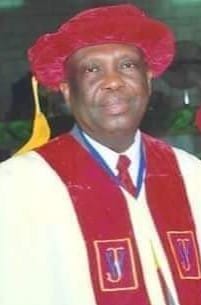
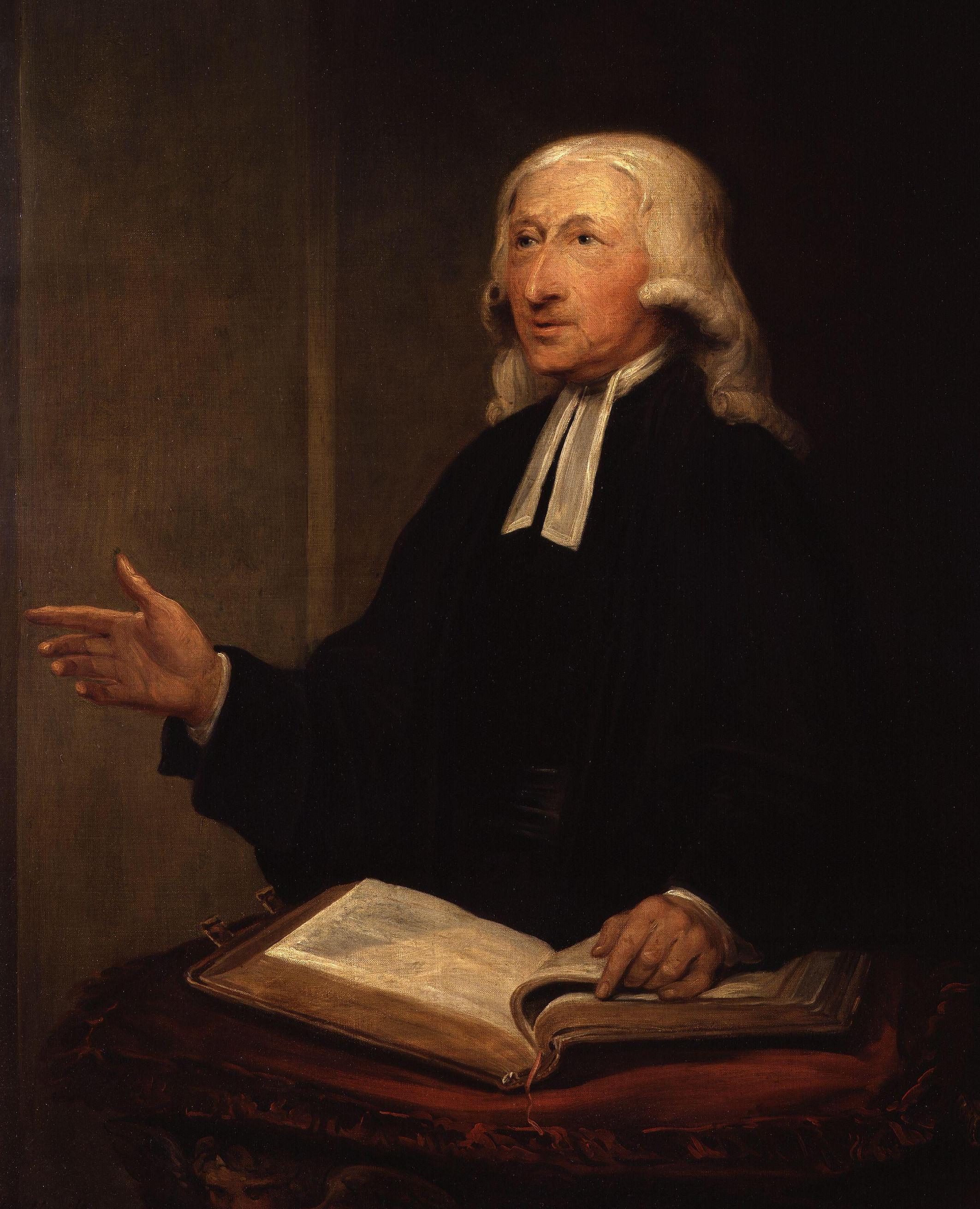
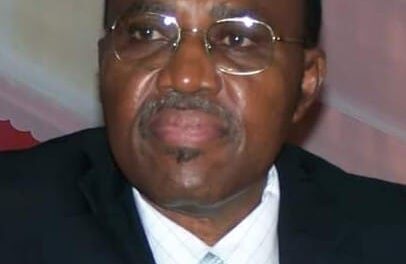
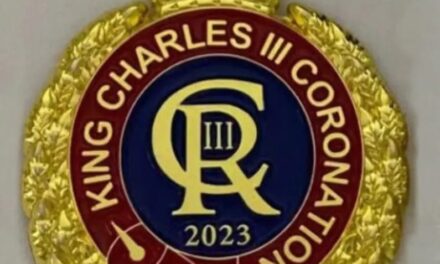
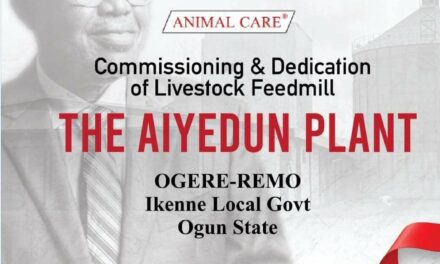





Recent Comments